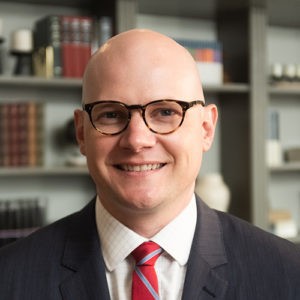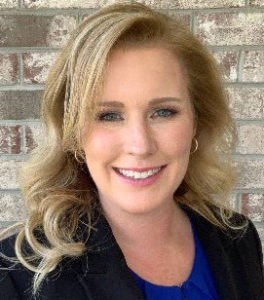Repairing the global damage done by the Trump administration to refugee resettlement work will take time but will happen, according a panel of evangelical Christians deeply involved in such work.
The Jan. 27 press briefing was convened by the National Immigration Forum and featured Elizabeth Neumann, former assistant secretary of counterterrorism and threat prevention at the Department of Homeland Security; Travis Wussow, vice president for public policy and general counsel for the Southern Baptist Ethics and Religious Liberty Commission; Nathan Bult, senior vice president of public and government affairs at Bethany Christian Services; and Matt Soerens, U.S. director of church mobilization for World Relief.
The panel spoke in anticipation of an announcement from the Biden administration to raise the annual ceiling on refugee admissions to the United States for fiscal year 2021. This annual allowance had been gutted by the Trump administration’s “America First” doctrine, which made villains of refugees and blocked paths for entry worldwide.
Infrastructure damaged
What the panelists revealed in their briefing with the religion press is the extent of infrastructure damage that has not been widely understood.

Matt Soerens
“We have lost a lot of infrastructure in recent years. We have closed eight of our offices and shut down new resettlements in several offices,” Soerens reported. “That’s consistent with other agencies as well. My understanding is it’s about a 38% reduction in resettlement offices around the country. Even the offices that remain often have smaller staff sizes.
“We are eager to rebuild, but that’s not something that happens overnight,” he added.
That theme was echoed by other evangelical leaders, who expressed joy that the Biden administration has signaled its intent to bring back refugee resettlement. But their message to Americans is to understand that so much damage has been done in the past four years that entire systems of work will have to be rebuilt first.
“The Trump administration made numerous harmful changes to the program,” Bult said. “One of them being that the U.S. no longer accepts (U.N. High Commission on Refugees) reports. The Biden administration will need to change that.” The Trump administration also “changed the allocations for refugee resettlement from regional to four different sets of criteria,” which created gaps in meeting emergent needs in places like Hong Kong, he added.
The United States Citizenship and Immigration Services apparatus “is defunded,” added Neumann. “They’ve not been processing anybody for over a year. They had to go to Congress to get special funding. It’s my impression that there is a desire for us to be able to do a better job helping people resettle. But to do that, we need to fund it.”
“We weren’t ready four years ago. In the past, refugee resettlement had broad bipartisan support.”
These drastic changes to immigration and refugee resettlement made by the Trump administration were not correctly anticipated, Soerens explained. “We weren’t ready four years ago. In the past, refugee resettlement had broad bipartisan support.”
Yet early in the Trump administration, “we had to make difficult, very sudden decisions,” he said. “We closed five offices within a couple of months of the executive order that happened four years ago today. We lost incredibly talented staff.”
Resetting the ceiling
The first public action that will come from the new administration is to reset the refugee admission ceiling.

Nathan Bult
Bult and Soerens laid out the historical pattern. Biden has promised to reset the number of allowed refugees coming into the country to 100,000 for this year and at 125,000 for 2022, Bult reported. “Historically before the four years of the Trump administration, the average was about 95,000.”
Soerens added: “The last full fiscal year (of the Trump administration), the refugee settlement goal was set at 18,000. And we got to somewhere around 12,000. In terms of historical norms, we’re very far from that. In the present fiscal year, under President Trump (the number) was set at 15,000, which is another historically low ceiling.”
The modern U.S. refugee resettlement program “was really birthed under President Gerald Ford” as a response to the fall of Vietnam, Bult said. By 1979, President Jimmy Carter set the refugee admission ceiling at about 200,000. “There were years under Presidents Reagan and George H.W. Bush when the ceiling was above 125,000.”
The U.S. can “definitely handle that,” he said. “But it will take some time to rebuild. No matter what the determination is set at this year, it’s going to be hard to resettle that many refugees because of the dismantling of the refugee resettlement structure not only domestically but also internationally.”
A broken pipeline
That rebuilding must include support centers and NGOs overseas helping with intake and processing, Neumann explained. Citizenship and Immigration Services “needs to hire a few hundred officers,” and other related agencies will need time to “staff up.”

Travis Wussow
Even though churches that previously were engaged in refugee resettlement work in their communities might be eager to resume those ministries, the pipeline to get those refugees to them must be rebuilt first, Wussow agreed.
“Pastors and churches are eager to serve and pick back up where they left off, … partnering with resettlement agencies and welcoming those who have had to flee their homes,” the Southern Baptist leader said.
He later added: “Southern Baptists are eager to get back to serving refugees. As a whole, our community is one that is very tenderhearted toward those who are fleeing persecution. We have talked about this issue in this way because it is a religious freedom issue as well. A huge percentage of folks who were fleeing persecution were fleeing some form of religious persecution. … We’re hoping we can return to … where refugee resettlement is not a partisan issue but part of our obligation to care for our neighbors.”
An ethical imperative
Bult echoed the ethical and moral imperative of caring for refugees. Today, an estimated 1.4 million people worldwide are “in desperate need of resettlement,” yet only 22,000 were resettled through UNHCR last year. That’s just 1.6% of the global need.”
Historical norms fall more along meeting 10% of the need, he added. And for that to happen worldwide, the U.S. must step up and once again demonstrate leadership. “We believe now is the time for the U.S. to reassert global leadership.”
This is imperative because “no one is more vulnerable than the 34 million child refugees around the world,” Bult declared. “Tens of thousands of those are unaccompanied children. As Christians we follow Jesus, and Jesus teaches us to welcome the stranger and love our neighbors. Refugees are those neighbors we are called to serve.”
Sending a message to the world
This is not to say the U.S. must — or could — take in all the world’s refugees, the group agreed.

Elizabeth Neumann
“What’s more important about setting that ceiling is it’s sending a very strong message to our partners overseas who feel like the United States has abandoned our previous commitments,” Neumann said. “When you have 80 million displaced persons in the world, resettling into the United States is not going to solve that problem.”
Yet, “in order to have the conversations with the global community about how we help 80 million displaced persons … we’ve got to get back to that global table,” she continued. “Setting the ceiling, even if it’s difficult (is) a signal to the rest of the world that we’re back … and we’re going to take this seriously.”
Educating communities and congregations
While polling has shown that a majority of Americans favor refugee resettlement — even in their own neighborhoods — there are places in America today where it is not safe for agencies to resettle immigrants, the panelists said.
“If there is a segment of the population that is misinformed and that makes them unwelcoming, we don’t want to send refugees there,” Soerens reported. “This requires more education in the churches on who refugees are, the economic contributions refugees make, that refugees are welcome to the United States as a legal process and, from a Christian perspective, framing all those concerns in the perspective of how to be faithful followers of Jesus.”
“The fearmongering that has taken place over the last four years was not founded in actual threat.”
Religious leaders can help dispel these misunderstandings and educate their congregations about the safety protocols already in place for screening new arrivals to America — a message that got twisted by the Trump administration, Neumann said. “The fearmongering that has taken place over the last four years was not founded in actual threat.”
Bult said the most common question his agency receives about refugee resettlement work is whether it is safe to receive these immigrants. The answer, he said, is to explain that the vetting process for refugees includes screenings by eight federal agencies, six security databases and two interagency security checks. “This is not a process where you simply purchase a plane ticket and you can come to the United States.”
Beyond that, the best question to ask someone who expresses fears about refugees is this, Bult continued: “Have you met a refugee?” This question matters “because proximity changes things. Having a meal around a table and viewing someone not as a refugee but as a person.”
About national security
Neumann has written a paper for the National Immigration Forum on refugees and national security. The biggest threat is not from the historic processes of U.S. immigration policy, she said, but from the exclusionary and shortsighted policies of the Trump administration.
“When we close our doors, which is what the Trump administration’s approach was, … the problems don’t go away; they’re still out there, and it makes people more bitter against the United States. The best way to protect us is to be a welcoming society.”
Misplaced fear over the past four years has obscured the real threat to national security, which is right-wing extremism, she added. “If you actually look at the data of terrorists we are arresting, we have more U.S. citizens arrested” than immigrants.
“It’s not that we don’t need to vet well — we do — it’s also that the arguments that were jaded over the past four years were emphasizing a threat over here, and this other threat was growing, and nobody talked about it.”
Her advice: “Tone down the rhetoric and start dealing in facts.”
Related articles:
Biden plans to restore refugee admissions, but rebuilding the system will take time
Faith-based groups unite to denounce Trump’s further gutting of legal refugee resettlement
Impact of Trump refugee cuts felt by churches, nonprofits and internationals


